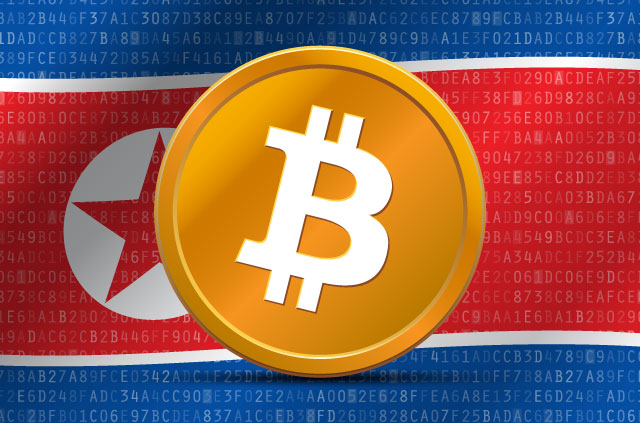UPDATE: January 19, 2018
On January 18, the Senate officially voted to reauthorize FISA Section 702 in a 65-34 vote. The President will almost certainly sign the bill, and the program that has enabled the U.S. government to surveil U.S. and non-U.S. citizens alike will remain as invasive as it ever has been, if not more so.
The bill, which has allowed surveillance programs like PRISM and Upstream to flourish, rejected an amendment that intended to provide oversight or transparency to it, retaining its ability to search the communications of Americans without a warrant and without being held accountable.
You should be made aware, if not already, that your innocence does not exclude you from having your emails, text messages, online activity, and other sensitive data swept up in mass surveillance as a result of the unchecked power this bill gives.
You can still take steps to protect your digital rights and privacy by using encryption to shield your internet activity, including by using messaging apps with end-to-end encryption like WhatsApp or Signal, a VPN with strong encryption, and installing the EFF’s HTTPS Everywhere browser extension.
***
One of the U.S. government’s most invasive pieces of privacy legislation is due for reauthorization before it expires on December 31, 2017.
What is FISA Section 702?
Section 702 of the Foreign Intelligence Surveillance Act (FISA), passed in 2008, enabled the NSA to conduct mass surveillance programs like PRISM and Upstream to collect unprecedented amounts of data from both U.S. and non-U.S. citizens.
Such surveillance was only brought to light when Edward Snowden blew the whistle on the NSA back in 2013.
The Foreign Intelligence Surveillance Act’s (FISA) Section 702, passed in 2008, enabled mass surveillance programs like PRISM and Upstream to collect unprecedented amounts of data from both U.S. and non-U.S. citizens.
FISA Section 702 is supposed to enable the collection of the content of electronic communications from non-U.S. persons (citizens or green card holders) located outside the U.S., as long as one “significant purpose” of this collection is to obtain “foreign intelligence information.” But the law gives plenty of room for the NSA to collect information on its own citizens and their communications, which undermines the U.S. Constitution’s Fourth Amendment right to not be subject to surveillance without a warrant backed by probable cause.
Now members of Congress are seeking to reauthorize Section 702, and without any significant changes to it, despite attempts to correct the most controversial parts of the bill.
ExpressVPN vehemently opposes Section 702’s renewal. Stand with us against this draconian mass surveillance program: Sign our petition to tell Congress to end the mass, warrantless surveillance enabled by FISA Section 702.
The U.S. government has tried to muddy the waters about Section 702’s surveillance reach, so we at ExpressVPN took it upon ourselves to look at the five biggest myths they’re trying to convince you of, and what uglier truths lie behind them.
Sign ExpressVPN’s 702 petition
1. Section 702 cannot be used to target Americans for surveillance intentionally
While technically correct—the government can’t intentionally target American citizens—the NSA can still collect data on conversations between targeted foreigners and American individuals. Intentions are therefore irrelevant as surveillance will include American individuals.
2. If FISA 702-enabled surveillance collects any American’s communications, it’s accidental
Nope, not an accident. The Director of National Intelligence James Clapper makes a point in this letter in June 2015 that the intelligence community needs to collect such communications to “understand the motivations and plans of individuals in contact with terrorist groups,” even citing homegrown terrorism as a reason why they must collect both.
In knowingly and deliberately collecting the information of U.S. persons, the government is clearly circumventing their citizens’ constitutional Fourth Amendment rights under Section 702.
3. Agencies can’t perform warrantless back-door searches on U.S. persons with Section 702
They can. The FBI and other agencies can ask for information on an American citizen whose comms have been collected “accidentally” through 702 without a warrant. Section 702 leapfrogs over the Fourth Amendment where a warrant or court order is needed to access a U.S. person’s communications.
As the primary target is a non-U.S. persons’ communications, there is a loophole whereby agencies can ask for a U.S. citizen’s communications without a warrant. The information can then be used to investigate and prosecute Americans for charges that don’t even link to terrorism. Which leads us to our next point…
4. FISA 702 surveillance specifically targets suspected terrorists only
False. The only definition is that targets don’t come from or live in the U.S., and a “significant purpose” (not necessarily the sole or principal purpose) of the surveillance is to obtain “foreign intelligence information.” “Foreign intelligence” is defined by Section 702 to include purposes beyond terrorism, such as journalists or activists blowing the whistle on America’s domestic and foreign affairs.
5. If the NSA tries to abuse its power, the FISA Court can hold them accountable
Not really. The role the FISA Court plays is laughably limited. For one thing, the government doesn’t have to obtain surveillance orders in court.
The court does have “targeting procedures” to make sure that targets are “reasonably believed” to be outside the U.S. and “minimization” procedures are adopted to, well, minimize the amount of information collected about U.S. persons. But the government isn’t required to go to the FISA court to obtain surveillance orders.
Instead, the court just approves procedures by checking to see whether they’re consistent with the Constitution’s Fourth Amendment. After approval, the court no longer has any authority over or visibility into whether the government remains compliant with these procedures for that target’s case.
The truth about FISA 702
FISA Section 702’s reauthorization at the end of this year will reinforce the U.S. government’s mass surveillance programs, which not only collects communications en masse but also enables the warrantless surveillance of U.S. citizens, bypassing the U.S. Constitution’s Fourth Amendment right.
We at ExpressVPN believe that the renewal of FISA Section 702 not only our fundamental right to privacy but also our rights enshrined in the U.S. Constitution, including our First Amendment right to freedom of speech and our Fourth Amendment right to be secure against warrantless search and seizures.
Don’t want your rights taken away? Tell Congress to end mass, warrantless surveillance enabled by FISA Section 702. Sign the petition, and tell your representative not to vote for its renewal.


























